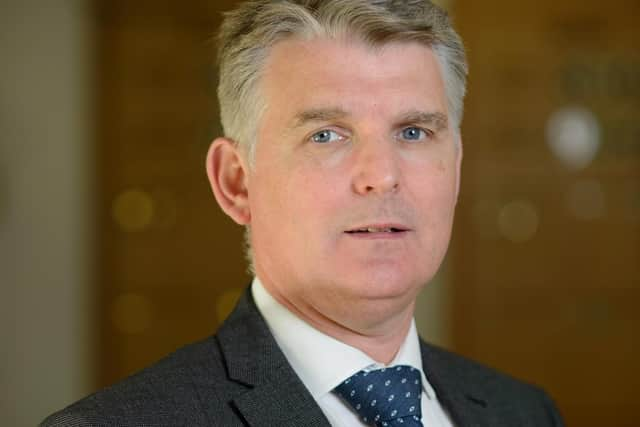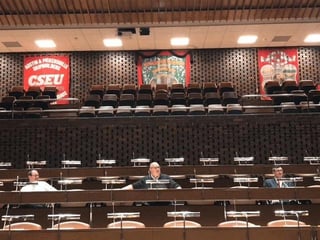Sunderland council boss appears on BBC over impact coronavirus is having on the city
and live on Freeview channel 276
Letters are due to be sent to 1.5million people in England deemed most at risk due to existing health conditions and warning them to begin ‘shielding’ by staying at home.
But council chiefs for Wearside say there are still many more household and families who will not be counted in this and could fall into ‘crisis’ if they don’t get the help they need.


Advertisement
Hide AdAdvertisement
Hide Ad“The next few months are going to be really difficult for local authorities, we have already experienced a number of our staff who are self isolating,” said Patrick Melia, chief executive of Sunderland City Council.
“The key pressures for us are as in the NHS, pressure on us in terms of social care, protecting vulnerable in society who aren’t part of the 1.5 million group and who may be going into crisis.
“We’ve been doing a lot of work preparing for this, thinking through who our most critical workers are and then working through that, as our critical workers may have to self isolate, how some of our staff from other categories can be brought forward and retrained to fill in the gaps as we go forward.”
Melia was speaking on BBC Radio 4’s Today programme, where he was quizzed about the impact COVID-19 was having on Wearside.
Advertisement
Hide AdAdvertisement
Hide AdHe told host Mishal Husain many now appeared to be ‘respecting the advice’ issued by the government to stop non-essential travel and gatherings.
But he warned the council needed to identify households and individuals without adequate support networks in place to see them through the virus outbreak in Sunderland, where there have so far been at least 20 confirmed cases.
“The government is contacting 1.5 million people,” Melia added, “but a lot of those people will have their own support networks in place already.
“So that’s the work we’re doing at the moment, to identify the people within the 1.5 million who don’t have the support networks in place, who will need vital supplies such as food and prescriptions.
“Hopefully we’ll have that information sorted in the next couple of days.”
